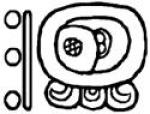 The day 8 Toj is one of the most important days of ceremony, with the nawal Toj representing the fire ceremony itself. This is a day to make your payments in order to sustain life and good health.
The day 8 Toj is one of the most important days of ceremony, with the nawal Toj representing the fire ceremony itself. This is a day to make your payments in order to sustain life and good health.
Life proceeds through energetic interactions. We consume energy in one form or another and then we return it, often in a different form. Even when it comes down to the air we breathe or the water we drink, there is some form of exchange going on. To come to a state of harmony within the world that we live, balance must be achieved. In this modern world, sometimes we defer these debts, whether they are financial or not. We take something, often with the intention of resolving the imbalance as soon as we can, but then end up forgetting these debts, especially the small. Individually this is not always too much of a problem,we can proceed with a small imbalance, but many small items eventually cause us to fall out of harmony. This in turn may lead to a state of disease and an illness may occur.
Toj days remind us to keep our promises, to make our payments in whatever form they might take. They might be physical or financial, or they might be words of gratitude, whether to our physical providers or to our environment. These simple acts help to keep us healthy, it is in our own interests to make these exchanges, to return what we have used.
The day 8 Toj is a day about resolving all debts in whatever form they take. It can be a day when we ceremonially make offerings to the fire on behalf of ourselves and our families. It is a day on which we can make a payment for future goodwill, by acting in service to our community. If there was ever a day to do a good deed, it is today, although don’t expect to be thanked for it. The reward will come in its own time.
To donate to ODIM, and help the people of San Pablo and San Juan la Laguna, please follow this link https://tinyurl.com/yb4l3rux

The nawal Toj represents offerings and payment. It is part of the name Tojil, a Mayan god who gave fire to the people, although this was not a free gift. Tojil asked in return for sacrifice to be made. This is a day of payment and sacrifice, a day to resolve debts, both in the physical and spiritual realms. Toj is the nawal of the sacred fire, and it is to the fire that we make offerings in order to burn away what would commonly be known as karmic debts. In this way we restore balance, we bring our accounts back to zero.
Toj carries with it a form of divine protection, which is enhanced through selfless acts. These acts might involve a sacrifice of our time or energy in order to strengthen our community. We can choose to act or we can choose to ignore, but be aware – ignoring an opportunity to make a payment on a Toj day might bring a ill fortune, the removal of the protection. Payment should be made with an open heart, thanks might not be quickly forthcoming, and may not come at all. Your sacrifice could be something as simple as picking up litter in your neighbourhood, it doesn’t have to be something elaborate.
The number 8 is considered to be a number of wholeness. It can be seen as birth (1) and death (7) combined to represent the whole cycle of the soul. It can also be seen as the point where the four first men who raised the sky from the sea were joined by their wives and the world become whole. It is the most common day for ceremonies to be made, it is still in the balanced range of numbers and is an even number, which is also considered fortunate. As this wholeness represents every aspect of the energy of the day with which it is coupled, it is the wholeness of the nawal that is addressed in ceremony.







